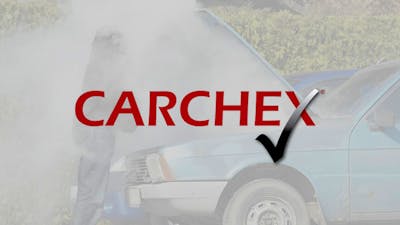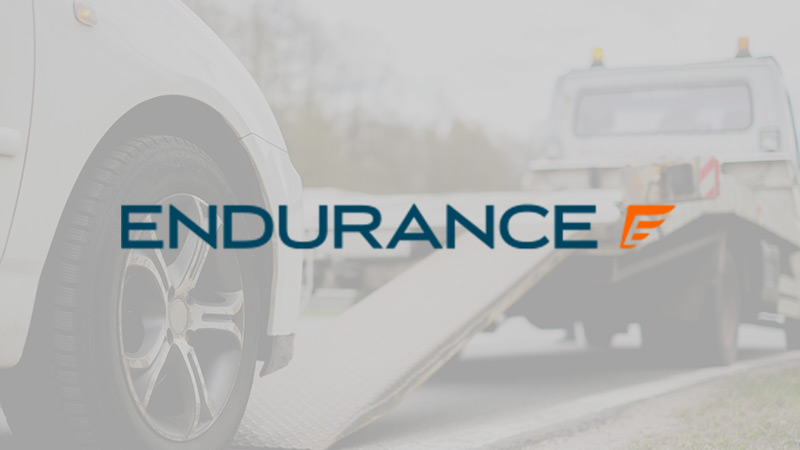Nissan Maintenance: Cost, Repairs and Schedule
Two unexpected expenditures of owning a vehicle are maintenance and repair. Maintenance includes pre-planned work you do to keep your vehicle operating smoothly. Tire replacements and rotations, 12-V battery replacements, brake fluid changes, brake pad and rotor changes, and air filter changes make up most of maintenance costs on modern automobiles. With spark plugs lasting as many as 120,000 miles, timing belts lasting over 70,000 miles, distributor caps obsolete, and no more power steering fluid to change, most vehicles are relatively maintenance-free compared to cars from our childhood.
Popular Warranty Providers
Repairs are a different type of work that you must expect and budget for. These are unexpected and unplanned jobs required to fix a vehicle that breaks after it is out of its manufacturer warranty period. Good examples of common under-the-hood repairs include alternator replacements, starter motor replacements, and AC compressor replacements. Suspension components also have their issues, and some models are much more susceptible to failure than others. Wheel bearing replacements, strut and shock replacements, and ball joint repairs are typical of the suspension repairs many cars will require.
Eventually, every part of every car will need attention and will eventually fail. In our story here, we are going to ignore the massive failures and repairs that very old, fully-depreciated cars will present with. Things like a complete engine failure or transmission failure can cost as much as $5,000 and are often the final straw in an older car’s long list of pricey repairs before it is retired and put out to pasture. Our story will focus on the maintenance and repairs needed to keep a modern vehicle running up to and beyond 100,000 miles.
How Much Does It Cost To Maintain a Nissan?
Based on prices we obtained from Boston-area Nissan dealers, the price to maintain a Nissan Rogue, the brand’s most popular model is approximately $6,900 over the first 100,000 miles. This price includes oil changes, tire rotations, two sets of tires, one set of brakes (front and rear) plus the other services the manual recommends. It does not include repairs.
Nissan Recommended Maintenance Schedule
We have created the chart below showing the maintenance schedule for one of Nissan’s most popular vehicles, the Rogue crossover SUV. Your local Nissan dealer or trusted shop can provide you with an estimate for the needed work before you arrive. Always keep in mind that the only scheduled maintenance needed for your Nissan is what is listed in the vehicle’s owner’s manual. Dealerships and some independent shops often add unnecessary and even unhelpful services to boost their revenue. Check out our story on “Avoiding the Fluid Flush Scam” for more on this topic.
| Maintenance Job | Every 5K Miles | Every 20K Miles | Every 30K Miles | Every 120K Miles |
|---|
Typical Costs For Routine Nissan Maintenance Jobs
What you pay for maintenance depends on your specific make and model and, to a large degree, where you have it serviced. Dealers typically charge 10% to 30% more for the same service you would get at a trusted local shop. The guide below is intended to help create a budget for maintenance work commonly done on most vehicles.
| Maintenance Job | Approximate Cost Range |
|---|
What Are Wear Items and Various Inspections?
Our chart above lists “Various Inspections & Minor Adjustments” as one of the many maintenance items required to properly maintain a vehicle. These include common sense things like a visual brake inspection, hands-on suspension component checks, visual inspection of hoses and belts, checking that coolant, transmission, and differential oil levels are at the proper setpoints, and re-torquing specific bolts on the vehicle, such as those on the propeller shaft (driveshaft). Most shops will do these things for a nominal fee. However, dealerships tend to inflate the cost of these inspections and minor adjustments at the 15K intervals. Often to the tune of hundreds of dollars.
| Wear Item Service | Estimated Interval Miles | Budget Cost Range |
|---|
~ means approximately.
Consumable Parts Maintenance For All Vehicles
All vehicles have consumable parts that require maintenance and replacement at certain points in the vehicle’s lifespan. There is no set time for many of these, but rather, they are done when needed.
Here is a quick rundown of some common items that you should budget for:
- Wiper Blades - Expect to replace wiper blades every 10,000 to 20,000 miles. You can do it yourself or pay the shop double the parts cost to have it done. Budget $20 to $50.
- 12-V Battery - Your car’s battery will last from three to six years on average, depending on how hot or cold your area is. Heat kills batteries, and they then pass away on a cold morning. AAA offers onsite battery replacement for most cars in most areas. Budget $200.
- Brakes - Your brakes will wear out in pairs. Front pair and rear pair. They may all coincidentally wear out at once, but that is uncommon. Budget $400 to $750 per pair. This includes rotors, pads, and minor parts, plus labor. Calipers and other brake components fail less commonly.
- Brake Fluid Changes - Most manufacturers and all shops will recommend that you change your brake fluid periodically. 30,000 miles is a typical interval. Budget about $200 for this. However, it is also often done during a brake pad and rotor replacement, so you may not need it as often as every 30,000 if you also service the brakes.
- 4-Wheel Alignment - Your suspension undergoes slight changes as your car ages. For this reason, a shop will recommend a 4-wheel alignment at certain intervals. It is also smart to do this when purchasing new tires so that the new ones will wear properly. Budget $125 for this service. It should not be needed more than every 30,000 miles unless you travel off-pavement frequently.
- Tires - Tires can wear out on their own by losing tread, being damaged, or by being too old and suffering from environmental degradation. Budget for tires on a typical mainstream vehicle every 40,000 to 50,000 miles or so, and more frequently for EVs and sporty vehicles. Your budget will depend on your vehicle, but around $1,000 is a typical cost, including the mounting, balancing, and disposal fee of your old tires. To maximize the lifespan of your tires, always keep them properly inflated and rotate them according to the manufacturer’s suggested interval.
- Belts and Hoses - The accessory belt in your engine and the hoses that carry coolant and other fluids don’t have specific replacement intervals, but they do wear. Expect to replace the belts and hoses in your vehicle at least once every 100K miles. Prices vary according to the vehicle and the needed part. Budget $300 per vehicle per 100K usage.
- Timing Belts - A very critical part of some engines is a rubber/composite engine valve timing belt. This belt typically lasts between 70K and 90K miles or about 7 to 9 years. Replacement is costly and includes a water pump change in most vehicles. Budget $750 to $1,000 for this once every 100K service. Note that many vehicles use a chain instead, so your vehicle may not have this belt. Timing chains are designed to last the life of the vehicle and save you money.
- Transmission Fluid Changes - By Car Talk’s count, there are now over five different common transmissions in use in modern vehicles. Geared, CVT, eCVT, DSG, and manual. Each has its own needs, and each manufacturer has their own schedule for service and fluid replacements. Consult your manual. Many modern vehicles have sealed transmissions meaning they do not require fluid changes. If your vehicle does require a transmission fluid change, budget $350 to $650 for this service.
Common Vehicle Repair Examples
Many components that are designed to last the life of a vehicle do not. Our chart below includes some commonly repaired and replaced parts of modern vehicles. These should only be a once-per-ownership event. If you find that your vehicle requires multiple repairs of the same type, it may be time to look for a new car.
| Common Repair Type | Approximate Cost (varies by make and model) |
|---|
Should I Buy a Nissan Prepaid Maintenance Plan?
Nissan’s prepaid maintenance packages seem like a fantastic value. Given that an oil change alone can cost as much as $100, the cost of a prepaid plan seems like a great idea if you plan to keep the vehicle. We suggest getting the Nissan-branded plan of your choice because it can be used at any Nissan dealer.
How Much Does a Nissan Prepaid Maintenance Plan Cost?
Car Talk called a half-dozen Boston-area Nissan dealers to gather price information on the cost of maintenance for a Nissan Rogue. We found that the Nissan-branded program was by far one of the most affordable packages available and also that it was a much better value than the packages that the dealers themselves offer. The dealer-branded packages are only valid at the dealer who sells them, and the Nissan-branded packages work at any Nissan dealership.
Here are the prices we were quoted:
Dealer Branded Prepaid Maintenance Package:
- Covers all required maintenance for 48 months or 48,000 miles
- Cost: $1,234
*Nissan-Branded Prepaid Maintenance Packages: *
- Nissan Basic Prepaid Plan $1,247
- Nissan Basic Plus Prepaid Plan $1,291
- Each package has a duration of eight years or 100,000 Miles
- Oil Change Only $1,170
Here is a chart that overviews what the various Nissan Prepaid Maintenance Plans cover:
Common Nissan Problems and Repairs
Nissan was a pioneer with regard to continuously variable transmissions (CVTs). For this, they earned a bad reputation some time back for “transmission issues.” While there were certainly some bad years and some failures, the CVT is now almost ubiquitous in most mainstream sedans and crossovers. Nissan now knows more than most brands how to make them work.
We scoured Car Complaints and Consumer Reports looking for repeated failures and came up with no good evidence to suggest Nissan has any ongoing big reliability problems reported by owners.
Is a Nissan Extended Warranty Worth It?
J.D. Power’s 2022 Dependability Study ranked Nissan just below average. However, the brand scored higher than Infiniti, Acura, Audi, Honda, and Subaru. It’s a toss up whether to purchase an extended warranty for a Nissan vehicle. Nissan’s warranty is much shorter than brands like Mitsubishi, Hyundai, and Kia, so if you plan to keep the Nissan for many years past its warranty, and if a large unexpected repair bill will upset your budget, a warranty may help.
Our Recommendations
If you are planning to purchase a Nissan Rogue or any Nissan vehicle, we suggest reading the reliability ratings for your particular year and model. We would also have a peek at the customer satisfaction scores.
Methodology For Best Warranty Providers
Car Talk has spent the last two years diving deeply into the warranties industry for the benefit of our readership and long-time listeners. Our process for deciding on the best warranty companies is exceptionally thorough, involving in-depth research and our unique secret shopper initiative. We compiled over 50 data points across all reviewed companies to refine and inform our selection process. Car Talk reviewed the following important criteria for each company:
- Consumer Satisfaction: Cross referencing multiple trusted resources to pull our fair and balanced customer reviews.
- Cost: Utilizing our secret shopper initiative, we got comparable quotes across all companies so we can validly compare pricing.
- Coverage and Offerings: Our research team delved into the coverage and offerings for each company, comparing what is available, including extras and discounts.
- Official Ratings: We consulted a wide range of verified review sites to extrapolate a ratings score for each.
Read more on the Best Warranty Companies in the industry here.
Read more on Nissan Extended Warranty here.










